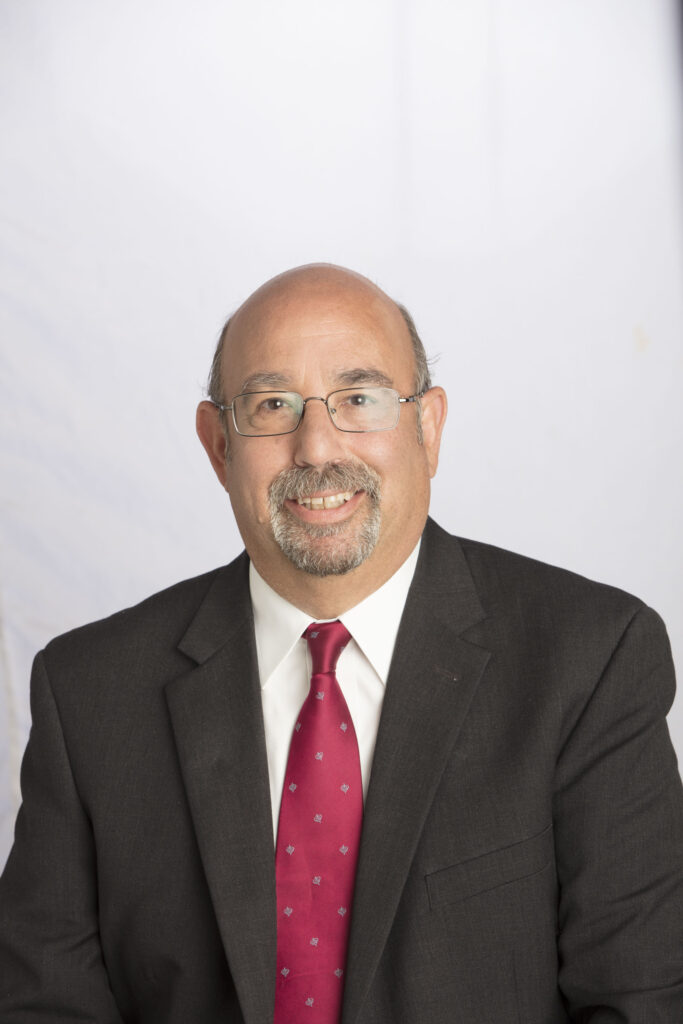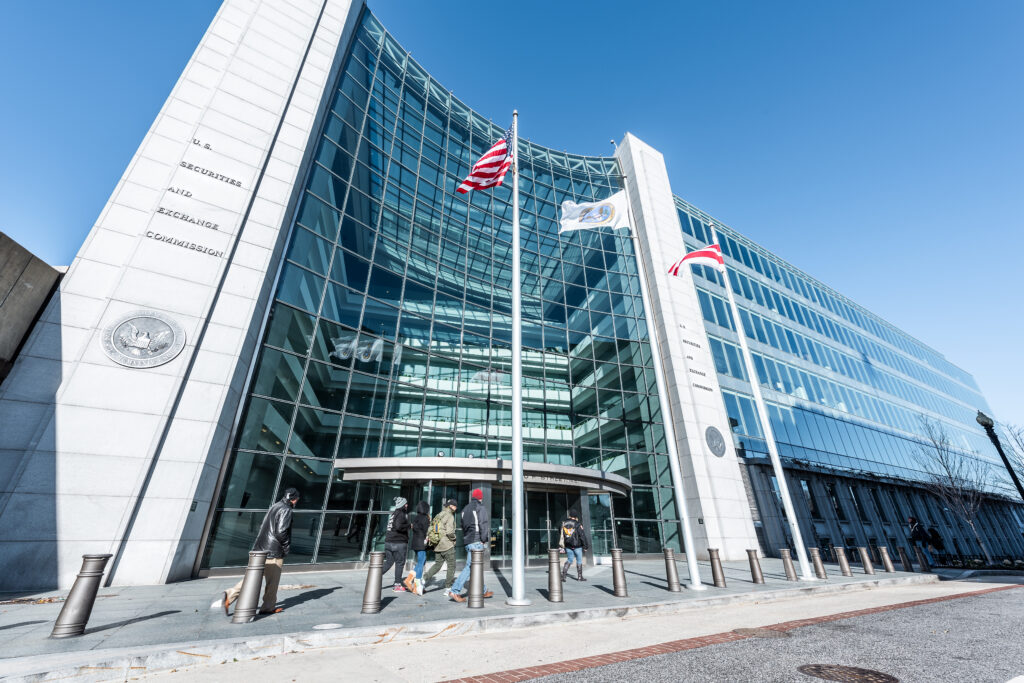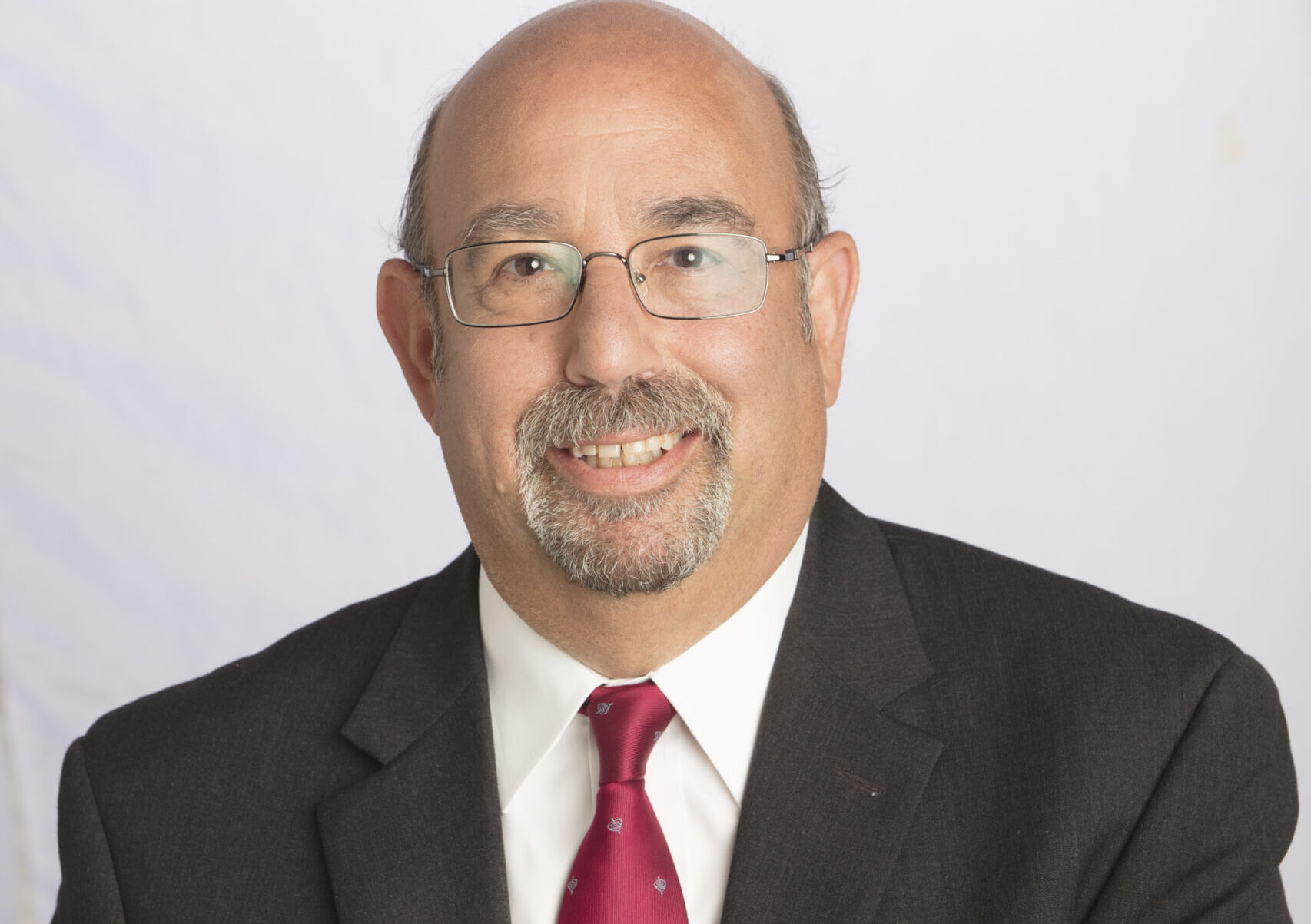This is Part 2 of my interview with Handsome Bob. In this one we discuss the work he’s been doing since he retired from the Financial Accounting Standards Board (FASB). Topics include his board seats at Fannie Mae, Morgan Stanley, and Workiva, being a board member at the Sustainability Accounting Standards Board (SASB) and the important work he did during this time, his reflections on the work of the International Sustainability Standards Board (ISSB), and the recent report from the Committee of Sponsoring Organizations (COSO) on sustainability reporting.

Bob Herz | CADE MARTIN PHOTOGRAPHY
Eccles: You retired from FASB in 2010. What have you been doing since then?
Herz: I have been quite busy, as my wife Louise says, “Bob is failing retirement.” I am on a number of boards, including Fannie Mae and Morgan Stanley (on both of which I chair the audit committee) and Workiva (where I have been involved since it was a startup and is probably now the leader in cloud-based reporting solutions); a number of advisory boards; serving for many years as an executive-in-residence at Columbia Business School; participating in various sustainability and sustainability related projects; traveling with Louise and enjoying being with our kids and grandkids all of whom live very near us. I love the variety.
Eccles: I remember trying to recruit you for the board of SASB and you said, “I’m always a sucker for a good cause.” Did you have much hope for SASB?
Herz: You will recall that I first joined SASB’s Advisory Council and then around 2014 I joined the Board of Directors. I would say that I although I recognized the many challenges we faced in producing a set of industry-specific sustainability reporting standards for scores of industries and in gaining support and acceptance for what the SASB was doing, I was cautiously optimistic as increasingly investors were calling for companies to report metrics and other information on sustainability issues that are material to their financial performance and value creation over time.
Eccles: What happened during that period of time?
Herz: Bob, under your leadership as the first Chair of the SASB Board and that of Jean Rogers as the founder and first CEO of SASB, a lot was accomplished in terms of developing a set of preliminary standards covering over 75 different industries. Those preliminary standards were primarily developed by SASB’s technical staff consulting with industry working groups, each comprised of representatives from companies, investors, financial analysts, auditors, academics, and other industry experts.
After I came on the Board, we created a subgroup that I headed to study whether and how we might enhance and strengthen the structure and governance of the organization. What we came up with was modeled after the two major accounting standard setters, the FASB and the IASB, where there is a two-tiered structure of a board of directors or trustees with responsibility for overall mission accomplishment, including funding and finances and oversight of the integrity of the standard-setting process, and a standard-setting board with a thorough and open due process and supported by technical staff.

An empty meeting room and conference table stock photo (Photo: iStock)
Eccles: Makes sense to me but NGOs can be tricky beasts. Was your advice accepted?
Herz: I’m pleased say it was! SASB was reorganized along those lines and in 2017 the new SASB standard-setting board went to work intensely reviewing the preliminary standards and proposing many changes which were then exposed for public comment, resulting in the issuance in late 2018 of a revised set of 77 industry-specific standards. As I recall at that time there only about 50 companies reporting using SASB standards. But with increasing calls from major investors for companies to adopt the SASB standards and more and more companies responding to those calls, there are now around 2,500 companies worldwide using them. I also chaired the Due Process Oversight Committee through which the SASB Board of Directors oversaw the standard-setting process of the SASB standards board.
Eccles: When did you leave the SASB board of directors and what else were you working on?
Herz: I didn’t leave SASB per se. Rather, in 2021 SASB merged with the International Integrated Reporting Council (IIRC) to form the Value Reporting Foundation (VRF) and I became a member of the Board of Directors of that organization. Then in 2022 the VRF merged into the IFRS Foundation and its newly established International Sustainability Standards Board (ISSB). The ISSB’s mission is to establish a global baseline of sustainability reporting standards, including assuming responsibility for taking forward the SASB standards and the work of the IIRC. I am a member of two of the advisory groups to the ISSB and IFRS Foundation Trustees: (1) the Transition Advisory Group that is advising the IFRS Foundation and the ISSB on the integration of the VRF and the Climate Disclosure Standards Board into the IFRS organization and (2) the Integrated Reporting and Connectivity Council that is advising the IASB and the ISSB on taking integrated reporting forward.
Eccles: As we both know these were enormously important steps in laying the foundation for high-quality sustainability reporting. But a number of other important things were going on around the same time, right?
Herz: Yes there were! In response to the G7 Impact Task Force’s call for mandatory impact accounting, in 2022 the International Foundation for Valuing Impacts (IFVI) was formed to build upon the work of the Harvard Impact-Weighted Accounts project, the Value Balancing Alliance, and others in developing and implementing common methodologies for measuring environmental and social impacts in monetary terms. I became a member of the Board of IFVI.
I have also been working with an organization called the Intrinsic Exchange Group which, together with the New York Stock Exchange, is developing a public market for the securities of a new class of companies called Natural Asset Companies that are formed to own the rights to the ecosystem services of, for example, rainforests that will be preserved and enhanced and farmlands that will employ regenerative agriculture methods. As I will discuss in a moment, in March 2023 the Committee of Sponsoring Organizations of the Treadway Commission (COSO) published a study I coauthored on implementing internal controls over sustainability information. And I continue with my other aforementioned board and advisory board activities.

An empty meeting room and conference table stock photo (Photo: iStock)
Eccles: What are you seeing at the board level about sustainability and sustainability reporting?
Herz: This is an area that seems to be evolving. Until a few years ago, while there a number of companies in, for example Europe, where there was substantive Board involvement in and oversight of the sustainability goals, activities, and reporting, in the U.S. either there was little or no Board involvement. The sustainability reports that were issued were often more of a corporate social responsibility (CSR) report on such things as charitable donations and employee volunteer activities. When there was some reporting to the Board, it was often to the Nominating and Governance Committee.
But in the past few years, as CEOs and senior management increasingly started to focus on key environmental and social issues affecting the company, Board oversight of these has been evolving in the U.S., particularly at the larger public companies. For example, some Boards have formed a new committee to specifically focus on sustainability, while at other companies the oversight responsibilities have been divvied up between the full Board and various existing committees with the overall strategy on sustainability discussed by the full Board, the Audit Committee overseeing the company’s sustainability reporting and any external assurance, the Compensation Committee addressing whether and how progress against key sustainability goals and targets gets incorporated into the evaluation and compensation of the CEO and senior management, the Risk Committee overseeing the risk management of the sustainability activities, etc.
Eccles: Okay, I know this is a complete non sequitur, but I have to ask. When did you become Dr. Handsome Bob?
Herz: On May 10, 2007, when I was awarded an honorary doctorate by the University of Manchester.
Eccles: How nice! That was my 56th birthday. But I also have to admit to some jealousy. You deserve the Dr. title, but I don’t deserve the Handsome label and so will never have it.
Herz: Let it go, Bob. Be happy you can flip a 550 pound tire four or more times at 72 years old!
Eccles: Good point and I do take some comfort from that 🐥. A lot has happened since SASB as you’ve explained already. What’s your take on the ISSB, the European Standards for Sustainablity Reporting (ESRS) developed by the European Financial Reporting Advisory Group (EFRAG), and the SEC climate rule?
Herz: Let’s start with the ISSB. As I’ve already mentioned, in 2022 the Value Reporting Foundation was merged into the ISSB under the IFRS Foundation and the Climate Disclosure Standards Board (CDSB) also merged into the IFRS Foundation. The ISSB is responsible for developing sustainability reporting standards and, together with the International Accounting Standards Board (IASB), integrated reporting. The ISSB just issued its first two standards, IFRS S1 on General Sustainability-related Disclosures and IFRS S2 on Climate-related Disclosures.
It also recently issued consultation documents on its forward agenda and on enhancing the international applicability of the SASB standards. There is a working group led by ISSB Board member Jeff Hales, formerly the Chair of the SASB standards board, on how the ISSB takes forward the SASB standards.
Eccles: All sounds very good to me. What’s going on with EFRAG and ESRS?
Herz: The EU is proceeding with the suite of ESRS developed EFRAG that address a wide range of sustainability topics both from the financial materiality and impact materiality perspectives. Under the Corporate Sustainability Reporting Directive (CSRD) they will be applicable for an estimated 50,000 EU-based companies and non-EU companies with substantial operations in the EU.

US United States Securities and Exchange Commission SEC entrance, people walking, sign, entrance, american flag, looking up sky, glass windows reflection stock photo (Photo: iStock)
Eccles: And the SEC?
Herz: Here in the U.S. in March 2022 the SEC issued a proposal on climate-related disclosures that it currently expects to issue as a final rule this October. It also has plans for enhanced disclosure requirements on human capital management. However, it seems likely that when the climate disclosure rule is issued it will be litigated in order to try to stop it becoming effective.
Eccles: Ah, life in the litigious United States, right? Not much we can do about that so let me ask you this. Are we going to end up with just another set of competing standards from regulatory bodies rather than NGOs?
Herz: From what I just described it would seem that we may be heading in that direction. However, there have been calls from both investors and companies for what’s being termed “interoperability” between the ISSB standards the sustainability reporting standards and rules issued by major national and jurisdictional authorities. Thus, there are a number of efforts underway to try to achieve common metrics and data definitions including the formation by the ISSB of a “Jurisdictional Working Group” comprised of the Chinese Ministry of Finance, the European Commission and EFRAG, the Japanese Financial Services Authority and the recently formed Sustainability Standards Board of Japan, the UK Financial Conduct Authority and the UK Financial Reporting Council, and the US SEC. So while on the one hand I am cautiously optimistic about these efforts to try to achieve significant interoperability, I am also mindful that aligning the views of various national and jurisdictional bodies each with their own statutory responsibilities will be challenging.
Eccles: What lessons can be drawn from the history of financial reporting standards that are relevant to sustainability reporting standards?
Herz: Oh gee, a couple of things. First, while reporting standards are a necessary condition for high-quality reporting, they are not sufficient. It also requires faithful implementation by the reporting companies, proper oversight by boards and audit companies, assurance, and effective regulatory review and enforcement. Second, just as financial reporting has and continues to evolve, so too will sustainability reporting. And as we discussed, right now we are seeing a quite rapid evolution of the sustainability reporting landscape.
Eccles: What do you think will happen with the SEC climate rule?
Herz: As I previously mentioned, assuming it does get issued it seems likely that it will be litigated. I am not a lawyer (and I don’t even play one on TV), but I am told that because the litigation could go on for a while, a key question on whether and when the rule actually becomes effective is whether a court issues a stay on it pending the outcome of the litigation. However, I think many if not most companies are continuing to plan for it becoming effective.
Eccles: What do you think the world will look like in terms of sustainability reporting standards five years from now?
Herz: Well, as you know, most companies already issue some form of sustainability report. In the U.S. that has largely been market-driven, often reporting metrics and information under the SASB and GRI standards, TCFD, UN SDGs, etc. So whether or not the SEC issues rules on climate disclosure and other sustainability topics, I think that the market-driven voluntary reporting will continue. And, as I’ve already mentioned, under the current CSRD schedule, U.S. companies with significant operations in the EU will in five years will also be reporting under the ESRS for their EU operations or even on a consolidated basis. I also believe that within five years the ISSB will have issued a number of standards which will increasingly be adopted by companies and mandated by countries around the world. Hopefully there will be significant interoperability between the standards and national and jurisdictional requirements, reducing the implementation and cost burden for companies and facilitating comparability for investors.

Woman hand pushing button in elevator stock photo (Photo: iStock)
Eccles: Which gets us to the latest COSO report on sustainability reporting. But first, please tell me a bit about COSO.
Herz: COSO stands for the Committee of Sponsoring Organizations. It was formed in the 1980s as a joint effort by five leading accounting and finance organizations – the American Accounting Association, the American Institute of Certified Public Accountants, the Financial Executives Institute, the Institute of Internal Auditors, and the Institute of Management Accountants to address fraudulent corporate financial reporting. In 1992 COSO issued its Internal Control-Integrated Framework (ICIF) which is now used by virtually all U.S. public companies and many other companies around the world and their auditors to report on the state of the company’s internal controls over financial reporting or ICFR.
Eccles: Thanks and now please tell me about the report.
Herz: In 2013 COSO in updating the ICIF made it clear that it could be used beyond financial reporting to help achieve effective controls over other forms of reporting and information. So in 2016-17 I and two coauthors undertook and published a study on applying the ICIF to sustainability information. Last year, against the backdrop of the rapidly developing landscape of sustainability reporting and sustainable business management, the Board of COSO commissioned a group, including me, to update and expand on our 2017 study. We did that through scores of interviews of knowledgeable people at companies, investors, analysts and ESG raters, accounting and consulting firms, corporate attorneys, academics, reviewing relevant literature and reports, and developing guidance, key suggestions and takeaways, and case studies. The resulting study entitled Achieving Effective Internal Control Over Sustainability Reporting (ICSR):Building Trust and Confidence through the COSO Internal Control—Integrated Framework was issued by COSO in March this year.
Eccles: What do you think this means for Chief Sustainability Officers (CSOs)?
Herz: For starters, I hope it will be a must read for CSOs and for all those involved in a company’s sustainability efforts and reporting. But more broadly, I think we are increasingly seeing a transformation of the role of the CSO and his/her team from overseeing the company’s CSR activities and reporting to becoming integrally involved in the company’s strategies, goal and target setting, risk management, capital allocation, and reporting, and overall infrastructure and processes around key sustainability issues.
Eccles: Good to hear. You know I think the CSO role is going through a major transformation and have written about that with Professor Alison Taylor in the Harvard Business Review. I think the COSO report will be very helpful to facilitating this transformation.
Herz: I certainly hope so. One of our key takeaways from the study that is achieving effective ICRSR requires bringing together the people in the company with the expertise in the various dimensions of sustainability and the people that are experienced in internal controls over reporting. So we think our study will be helpful to all these people.
Eccles: Thanks so much for your time. Anything else on your mind you want to talk about?
Herz: I will leave you and your readers with two thoughts. First, there is an old axiom in accounting and management that what you measure and report matters—it affects behaviors and actions and the resulting outcomes. So I think the corollary of this is to measure and report on those things that matter. Second, thank you for affording me this opportunity to share some of my experiences and thoughts on important matters. Throughout my career one of my greatest joys has been being able to work with and get to know many wonderful people. And I certainly include you, Dr. Bob, in that group.
Eccles: That’s very kind of you, Dr. Handsome Bob. But still jealous!
SUBSCRIBE TO OUR NEWSLETTER
Subscribe our newsletter to receive the latest news, articles and exclusive podcasts every week


